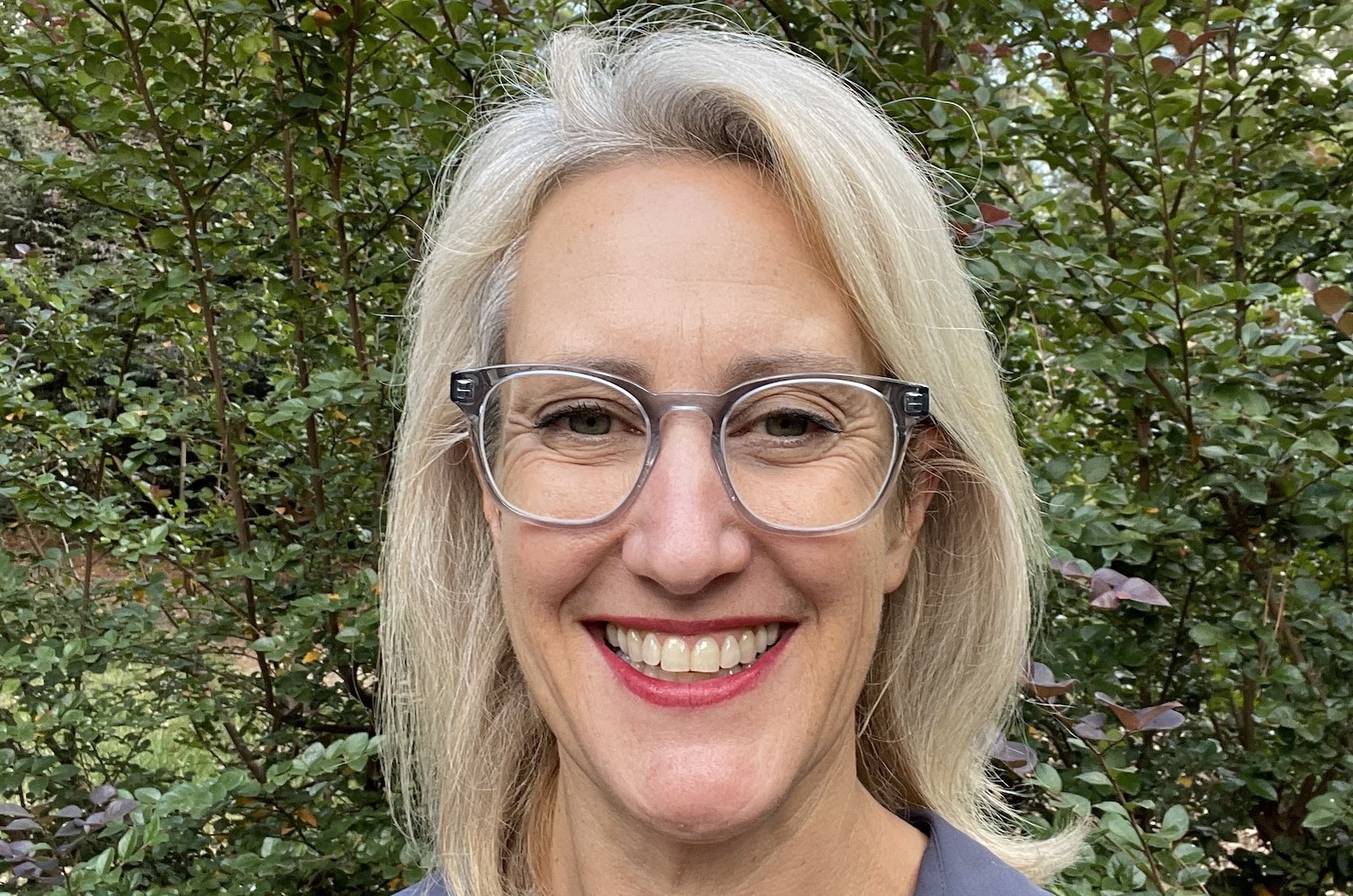The Community Builder
Under the leadership of Carolyn Mattingly, one of NC State’s largest academic departments became more unified.

When people ask Carolyn Mattingly about her biggest accomplishments as head of the Department of Biological Sciences, she thinks about what her mother, a longtime public school administrator, said upon her retirement many years ago.
“There wasn’t one big thing. There were hundreds of little things,” she remembers her mother saying. Mattingly feels the same way about her tenure as department head. “I just hope that the collective was positive for most people.”
Mattingly, a distinguished professor at NC State, stepped down earlier this summer after more than six years as head of one of the university’s largest academic departments. During that time, she hired dozens of faculty and staff, led efforts to increase transparency and accountability, and helped turn Biological Sciences into one of the most high-profile research units on campus.
“I am sincerely grateful to Carolyn for all she has done for Biological Sciences during her tenure as head,” said Lewis Owen, dean of the College of Sciences. “The department and its people have accomplished so much during a tumultuous period for our university and our nation, thanks in large part to Carolyn’s leadership.”
“I feel like we’ve made great progress in stabilizing the department and creating a greater sense of community and identity.”
Leading an academic department is an exceedingly challenging job. Each day, department heads face myriad challenges related to students, research programs, faculty and staff, curricula, facilities, college-and-university interactions, and budgetary matters. The size of Biological Sciences amplifies these issues. With 2,100 students and about 150 faculty, staff and postdoctoral scholars, it’s one of the largest academic departments at NC State.
“I’m a big list person, but it was rare to get through any list in a day because you get to the office and a ‘fire’ has happened,” Mattingly said. “And those fires are more frequent the bigger and more complex your unit is.”
Leading Biological Sciences
One of Mattingly’s primary goals was to bring a sense of continuity and community to the department, which was formed in 2013 from a number of smaller departments and programs at NC State. The resulting department was spread across seven buildings on Main and Centennial campuses, and the diversity of geography and disciplines proved challenging to manage and unite. The department cycled through four head transitions during its first half-decade.
Among Mattingly’s first actions was to institute an open-door policy in which faculty, staff and students could walk into her office and meet with her without appointment. This arrangement could prove disruptive for such a busy administrator, but Mattingly quickly realized that it not only added an element of transparency, it helped her learn more about the roles and responsibilities of many in the department, especially staff members.
“I learned very quickly that the departmental staff are the people who know the most. It was apparent how essential they are, and how clueless I was about what they did before I took over as head,” she said, laughing.
She embarked on and continued working on initiatives to build a greater sense of equity in the department. Some related accomplishments include standardizing teaching assistant stipends and undergraduate pay, developing a career track for professional advisors, instituting transparent administrative policies, and addressing salary compression where possible. She was also a strong advocate for and participated in efforts around inclusion and community-building.
“Her leadership has brought stability and created a culture of openness and trust, where faculty, staff, and students are valued and heard,” Associate Teaching Professor Claire Gordy wrote in nominating Mattingly for a 2024 Chancellor’s Creating Community Award.
And though Mattingly is quick to note that many of the department’s successes in research might have happened anyway under a different leader, it’s undeniable that the grant portfolio is larger and more diverse than it was several years ago. At the end of 2016-17, the year before Mattingly took over as interim head, the department received $7.6 million in grants. Fast-forward to the end of 2022-23, and the department landed $16.9 million.
Now, with the recent awarding of the North Carolina Center for Coastal Algae, People, and Environment (joint with Marine, Earth and Atmospheric Sciences), Biological Sciences leads or co-leads four environmental health-focused centers funded by the National Institutes of Health at NC State. The other three are the Center for Human Health and the Environment (CHHE), the Southeastern Liver Health Study, and the Center for Environmental and Health Effects of PFAS, a Superfund center that Mattingly herself leads.
“I feel like we’ve made great progress in stabilizing the department and creating a greater sense of community and identity,” Mattingly said. “I think it’s important for leadership to change and I feel good about what I’m passing off to the next head. He will have a solid foundation on which to plan for the next chapter of our amazing department.”
The Next Chapter
Leadership of the department now falls to Bruce Schulte, who recently joined NC State from Western Kentucky University, where he served as associate vice president for strategy, performance and accountability and university distinguished professor.
As Schulte settles in, Mattingly has returned to the faculty. She’s excited to devote more time to her research, including the Comparative Toxicogenomics Database, a publicly available database that aims to improve understanding about how environmental exposures affect human health. The database turns 20 years old this year.
She will continue to oversee NC State’s Superfund Research Program, which is a collaborative research, training, and community engaged effort to improve understanding about and protection against the toxicity of environmental contaminants known as per- and poly-fluorinated substances (PFAS).
She’ll also be directing the career development core for CHHE, where she’ll mentor junior faculty and others interested in taking on environmental-health-focused research. In teaching, she’s interested in developing courses about environmental health for first-and second-year students so exposure to these topics arrives earlier in undergraduates’ academic careers.
Mattingly says she will miss aspects of her old job. She enjoyed being involved in so many initiatives and interacting with a variety of people in diverse roles, which are essential parts of the position. Her efforts to bring those people together were among the most consequential of her tenure.
Wrote Gordy in her award nomination: “It is thanks to Dr. Mattingly’s effective leadership, communication, and compassion that our new Department Head will join a department with fewer silos and stronger community.”


